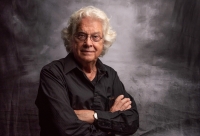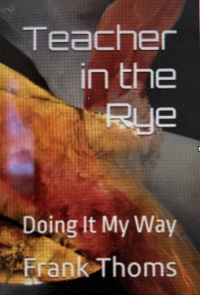Wisdom from a seminar, fifty years ago
In his 60s, white hair, large-rim glasses, short stature, and informally dressed. From his opening words, I felt his dynamic presence, his charisma, his wisdom.
His underlying message was for us to become awake to who we are as teachers, to our position in society, to be alert to the restriction placed on us by ‘the system,’ and to accept ‘anguish’ in our work. In the process, we need to become ‘first behavers’ and allow the children around us to be ‘first behavers.’ New terms for me, for all of us.
He assigned a paper, which he expected us to glean from the challenges he offered us in the previous weeks. We took turns to share them seminar style. I chose my title, “Toward a Liberating Education.” It was my chance to act as a first behaver: to make a radical statement that would create understanding and, perhaps, stimulate conversation.
I argued that formal public education must be subverted. I acknowledged its achievements, but I believed the educational establishment required new responses. Central to my argument: Schools need fewer ‘credential teachers’ and more ‘liberating teachers.’
For the credential teacher, his credentials are the most significant, perhaps the only, requirement for becoming a competent teacher…He, or some other authority, determines what is taught…He is a proponent of a prescribed curriculum with grouping based on standardized tests. In essence, teaching for him requires hardly any commitment––only compliance.
The liberating teacher is more difficult to define…He finds it a challenge to conform and function…He consistently urges his students to determine for themselves what they want to learn…What a child is concerned about becomes a curriculum…and in essence, teaching for him is an invitation…if people are not interested in sharing learning experiences with him he does not teach.
In conclusion, I articulated the challenge of convincing traditional educators and laypersons of the merits of progressive practices. Because they clung to their traditional approaches, they were not open to diverse modes of learning, which inhibited them from making further inquiry. Advocates of liberating approaches were frustrated as traditionalists dug in and maintained control.
By the time I finished my presentation, I lost most of the teachers in the room; I had much work to do. What a great lesson that was for me.
All this from a seminar from over fifty years ago. “Teaching as invitation” in most schools is still far away. But teachers can take back their classrooms and initiate conversations, invite thoughts and feelings into the room, an essential to education. Initiating a conversation is an invitation, which may lead to more of them. When students engage they are learning to speak up, to bring in thoughts and share them, to learn to be who they are and offer what they care about.
And teachers need support and encouragement in their efforts to take back their classrooms.

